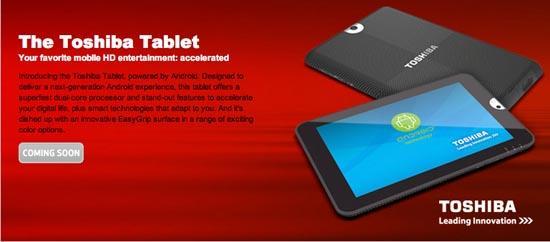
There are all sorts of different ways for manufacturers to string potential customers along. “Leaks” are probably some of the easiest and most deliberate ways to do it. A well-timed leak can provide potential customers with a new glimpse of a phone, or it can leave hints at the feature list. It’s meant to keep people interested in a phone, even if the manufacturer knows it’s going to be awhile before it actually ships. But, there’s an even easier way to keep the string tight and it’s as simple as two words: coming soon.
For the general consumer, making a major purchase, like a tablet for instance is usually planned. Dropping anywhere between $300 and $800 for a new gadget, especially when there’s plenty of gadgets to choose from, is one that usually takes at least a couple of days to decide on. (Of course, there’s always those “spontaneous purchases,” but those don’t count here.) Part of that planning process is the release date of any particular gadget.
If you’re looking at the tablet market, trying to decide which Android 3.0-powered device you want right now, or very soon, then the options aren’t all that great at this moment. But, that will change sooner than later. Toshiba’s got a tablet coming down the pipe, and it’s got the specifications that keep it ahead of the pack (for now), but as of right now there’s not a release date. Just a “coming soon” tag on the Best Buy website. And with those two words, consumers will wait for that date to come around, even if they were initially contemplating picking up another tablet.
The trouble doesn’t come from the usage of those words, but in the fact that for manufacturers it’s almost a scapegoat. They know that consumers want a hard release date – they want to be able to know when they can buy that tablet, and they want to know how long they’ll have to save up for it. But, with a coming soon propped up there, it seemingly gives the manufacturer an open schedule and no deadline at all. Why? Because coming soon can literally mean anything to a manufacturer.
Let’s face it: “soon” doesn’t mean the same thing to the general consumer, or to most people, that it does to a manufacturer. For me, soon means soon and not four months from now; and it certainly doesn’t mean anything longer than that. Soon means that the manufacturer already has the product ready to launch, but that they are comparing their release with the release of other gadgets at the same time. Soon tells me that everything is ready to go, and in the next couple of weeks I should have a tablet (or whatever it is I want) in my hands.
I think coming soon should have a universal understanding. When a manufacturer says coming soon, everyone should know that means it’s coming in less than a month and a half. Maybe less than two months. But, if you go beyond 60 days, it isn’t soon anymore. But what do you think of manufacturer’s use of coming soon? Do you think they use it a little too liberally? Let me know in the comments below.